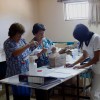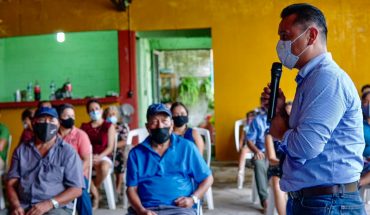
The discussion on the role of caregiving tasks in our society has been one of the central issues in the progress towards higher standards of labor justice for women and the establishment of parameters of gender equality within the world of work in general. In this line, the severity of the problem has only increased since the pandemic, understanding that hundreds of thousands of women had to take part in care actions directly assuming labor and personal costs.
Within the general data, and according to the latest National Survey of the Use of Time (2015), 52% of women assume to perform care work in an unpaid way, dedicating on average 3 hours a day to these activities. Complementary to this, 41% of women spend more than 4 hours a day caring for children or dependents, while only 16% of men spend similar time on these tasks, according to the Social Welfare Survey (2021). In the Metropolitan Region, the largest gender gap is generated. While women spend an average of 3.5 hours a day on care work (24.5 hours a week), men spend 1.8 hours a day.
This situation is independent of whether women have a job, unemployment or labor informality. However, when time use is analysed, women in charge of caregiving tasks spend significantly less time in formal jobs. Therefore, they receive lower incomes and have higher levels of economic dependence than men.
In INFOCAP we receive daily hundreds of women who seek to open new opportunities within the world of work and we have seen how the incompatibility of care and work is presented as one of the main barriers to activate in the workplace. One of the possible answers to take on this path has to do with the possibility of professionalizing the role of caregiver and opening, from there, an option of labor inclusion that allows an income generation adjusted to the pressing needs that arise.
In this sense, we have been implementing the Health Care and Care course for five years, where 99% of the students are women, of whom half are heads of household (they contribute the maximum economic income of the family) and the other half are economically dependent, in addition to having on average more than two dependent children.
In this period of time, more than 400 people have been trained, learning from anatomy, to first aid and self-care practices, managing to acquire the necessary knowledge to have new job opportunities, such as working in private homes or Care Centers for the elderly. Given the great experience gained since the course in the metropolitan region, we were able to advance in the opening of our first Health Care workshop within our headquarters in Concepción in a collaborative work with the Regional Government of Biobío, which will allow the formation of new groups of people interested in integrating into this field.
The crisis of care is multidimensional in the country and moving towards a National Care System that welcomes the historical demand to attend to those who care, guaranteeing their economic and social rights, is an urgent need in today’s society.
Follow us on
The content expressed in this opinion column is the sole responsibility of its author, and does not necessarily reflect the editorial line or position of El Mostrador.





